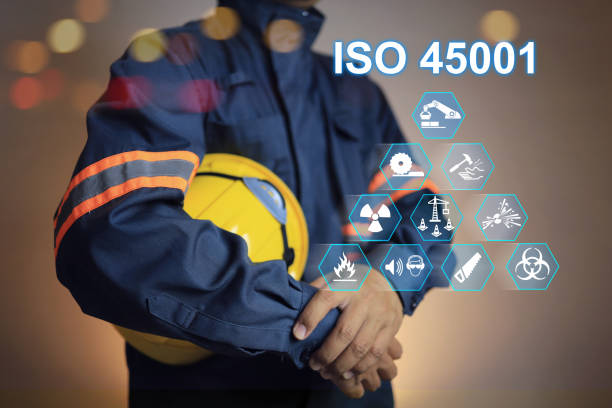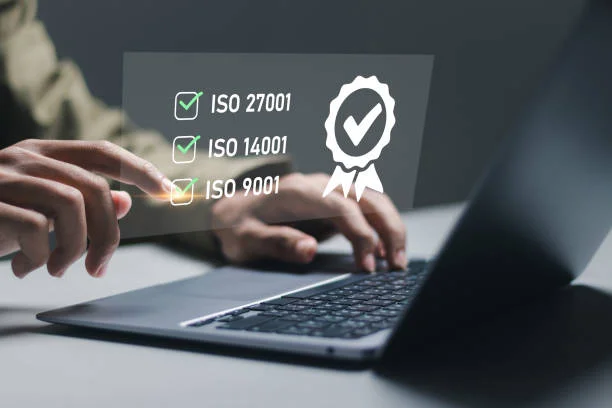ISO 41001:2018 Certification: The Global Standard for Facility Management
Facility management plays a crucial role in the efficient operation of any organization, impacting productivity, safety, and sustainability. The ISO 41001:2018 certification provides a comprehensive framework for establishing, implementing, maintaining, and improving a Facility Management (FM) system. This certification helps organizations optimize their use of facilities, improve efficiency, and deliver quality service that meets the needs of stakeholders.
In this guide, we will explore what ISO 41001:2018 certification is, its benefits, the certification process, and why it’s important for organizations looking to enhance their facility management practices.
What is ISO 41001:2018?
ISO 41001:2018 is an international standard that outlines the requirements for a Facility Management (FM) system. It provides organizations with a structured approach to manage their facilities, enabling them to improve efficiency, optimize resource use, and deliver value to all stakeholders, including employees, customers, and regulatory bodies.
The scope of ISO 41001:2018 covers the planning, design, implementation, operation, maintenance, and improvement of facilities. This standard applies to any organization, regardless of its size, type, or sector, that is involved in the management of facilities.
The goal of ISO 41001:2018 is to enable organizations to establish a framework that aligns their facility management practices with their business objectives, ensuring that facilities support the organization’s core activities and contribute to long-term success.
Key Features of ISO 41001:2018
ISO 41001:2018 offers a systematic approach to facility management, focusing on several key elements:
- Strategic Alignment
The standard emphasizes the need for facility management to be aligned with an organization’s strategic objectives. This ensures that the management of facilities supports the organization’s core activities and enhances overall performance. - Leadership and Governance
ISO 41001:2018 requires the involvement of senior leadership in facility management. Leaders are responsible for setting the FM strategy, ensuring resources are available, and promoting a culture of continuous improvement. - Planning and Resource Management
The standard outlines requirements for the effective planning of facility management activities, including the identification of resources (human, financial, and technical) needed to achieve the desired outcomes. Proper planning ensures that facilities operate efficiently and sustainably. - Risk and Opportunity Management
Organizations must assess risks and opportunities related to their facilities and implement measures to manage them. This includes addressing potential threats such as safety hazards, energy inefficiency, or disruptions to facility operations. - Performance Measurement and Monitoring
ISO 41001:2018 encourages organizations to establish performance indicators and regularly monitor their facility management activities. By tracking performance, organizations can identify areas for improvement and make informed decisions. - Sustainability and Environmental Responsibility
The standard highlights the importance of sustainable facility management practices. This includes managing energy use, reducing waste, and minimizing the environmental impact of facilities. - Operational Efficiency
ISO 41001:2018 focuses on optimizing the operation of facilities to improve productivity and reduce costs. This includes the efficient use of space, energy, and resources, as well as the effective maintenance of building systems and equipment. - Continual Improvement
The standard follows the Plan-Do-Check-Act (PDCA) cycle, which promotes continuous improvement in facility management processes. Organizations are encouraged to regularly review and update their FM systems to ensure they remain effective and relevant.
Benefits of ISO 41001:2018 Certification
Achieving ISO 41001:2018 certification offers several key benefits for organizations involved in facility management:
- Improved Efficiency and Performance
By implementing the structured approach outlined in ISO 41001:2018, organizations can improve the efficiency of their facilities, optimize resource use, and enhance overall performance. This leads to cost savings and better operational outcomes. - Alignment with Organizational Objectives
ISO 41001:2018 ensures that facility management practices are aligned with an organization’s strategic goals. This helps facilities to better support the core business activities and contribute to the organization’s long-term success. - Enhanced Risk Management
The standard encourages organizations to assess and manage risks associated with their facilities, helping to prevent disruptions, ensure safety, and maintain compliance with regulations. - Sustainability and Environmental Impact
ISO 41001:2018 promotes sustainable practices in facility management, such as reducing energy consumption, minimizing waste, and ensuring that facilities have a positive environmental impact. This is especially important as organizations face increasing pressure to operate in an environmentally responsible manner. - Global Recognition
ISO 41001:2018 is recognized internationally, making it a valuable certification for organizations operating in global markets or working with international clients and partners. The certification demonstrates a commitment to best practices in facility management and helps organizations gain a competitive advantage. - Improved Stakeholder Satisfaction
Effective facility management ensures that the needs of stakeholders, such as employees, customers, and regulators, are met. ISO 41001:2018 certification helps organizations provide a safe, efficient, and comfortable environment for all users of their facilities. - Cost Reduction
By optimizing facility operations, organizations can reduce costs related to energy consumption, maintenance, space management, and resource use. This results in significant long-term savings. - Continual Improvement
The standard promotes a culture of continuous improvement, ensuring that organizations regularly review and enhance their facility management processes to stay ahead of emerging challenges and opportunities.
Key Steps to Achieve ISO 41001:2018 Certification
Obtaining ISO 41001:2018 certification requires a well-planned approach. Here’s a step-by-step guide to help organizations achieve certification:
- Understand the Standard
Begin by purchasing a copy of ISO 41001:2018 from the ISO website and familiarizing yourself with its requirements. The standard outlines the principles and processes necessary for establishing an effective Facility Management System. - Conduct a Gap Analysis
Evaluate your current facility management practices against the requirements of ISO 41001:2018. This will help you identify areas where improvements are needed and develop an action plan for implementing the necessary changes. - Develop and Implement a Facility Management System (FMS)
Based on the results of the gap analysis, design and implement an FM system that complies with ISO 41001:2018. This includes developing policies, procedures, and controls to manage facilities efficiently. - Establish Performance Indicators
Define key performance indicators (KPIs) to measure the effectiveness of your FM system. Regularly monitoring these indicators will help you track progress and make data-driven decisions. - Train Your Team
Ensure that your facility management team is trained on ISO 41001:2018 requirements and understands how to apply the standard in their day-to-day activities. - Conduct Internal Audits
Before applying for certification, conduct internal audits to assess whether your FM system complies with ISO 41001:2018. Address any non-conformities and take corrective actions to improve your processes. - Management Review
Senior leadership should review the FM system to ensure it aligns with organizational objectives and delivers value to stakeholders. This review should consider the results of internal audits and performance monitoring. - Choose a Certification Body
Select an accredited certification body that offers ISO 41001:2018 certification services. The certification body will conduct an independent audit of your FM system. - Certification Audit
The certification body will perform a thorough audit to assess whether your FM system meets the requirements of ISO 41001:2018. If your system complies with the standard, you will be awarded certification. - Ongoing Surveillance Audits
After certification, your organization will undergo regular surveillance audits to ensure continued compliance with ISO 41001:2018 and the effectiveness of your FM system.
Who Should Get ISO 41001:2018 Certified?
ISO 41001:2018 certification is relevant for any organization, regardless of its size or sector, that is involved in the management of facilities. This includes:
- Commercial and residential property managers
- Hospitals and healthcare facilities
- Schools, universities, and educational institutions
- Government agencies
- Manufacturing and industrial plants
- Hotels and hospitality organizations
- Retail chains and shopping malls
Organizations that want to improve the performance of their facilities, reduce costs, enhance stakeholder satisfaction, and ensure sustainable operations can benefit from ISO 41001:2018 certification.







